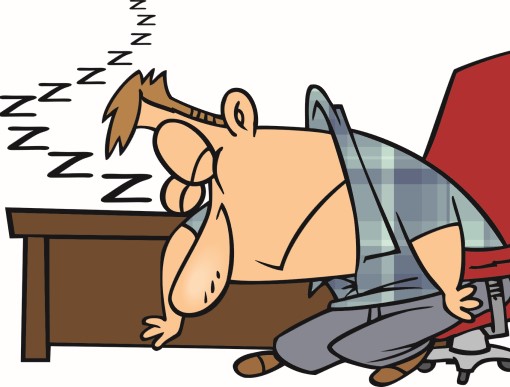
Is sleep apnea bad? – 5 ways it can wreck your life
By Jason Wooden, PhD | August 30, 2022
Whether sleep apnea is bad depends on symptom severity and how long its left untreated. Due to the physical and mental toll, sleep apnea can hurt job performance, strain relationships, lead to mental health issues, and increase your risk for life threatening health issues. Fortunately, there are plenty of things you can do to reclaim your sleep and life.
In this article, we’ll talk about:
1) The one billion sleep apnea sufferers
2) What a sleep apnea attack does to you
3) The 5 ways sleep apnea can wreck your life
4) Why it’s only bad if left untreated (remedies)
One billion sleep apnea sufferers and counting…
Let’s talk about whether sleep apnea is bad.
Waking up every hour throughout the night…
Complaints of loud snoring…
When morning finally comes you feel as if you haven’t slept at all and struggle with pounding headaches.
If any of this sounds familiar, congrats, you’re likely a member of the sleep apnea club. I’m a card carrying member too.
In fact, it’s pretty popular with one billion sleep apnea sufferers around world according to most recent estimates. (In the US, it’s thought to affect as many as 30% of adults.
If you’re not sure whether you’ve got it, here’s the list of symptoms:
- pauses in breathing while asleep
- choking, gasping, or snorting sounds
- loud snoring (not all everyone who snores has sleep apnea)
- dry mouth or sore throat
- difficulty staying asleep
- waking up frequently to urinate
- morning headaches
- fatigue during the day
- excessive daytime sleepiness
- irritability or mood swings
- attention, memory, or learning problems
That’s a lot of bad…
What happened to my nights and days was bad enough. Unfortunately, it doesn’t stop there.
We’re going to take a look at what’s actually happening, the various ways sleep apnea can wreck your life, and what you can do about it.
What a sleep apnea attack does to your body and sleep
So, what’s up with those sleep apnea attacks?
It’s basically a pause or interruption in your breathing while you’re asleep. A sleep apnea attack can last from seconds to minutes and may occur 30 times or more an hour in some individuals.
For, obstructive sleep apnea (OSA), the most common sleep apnea type, it happens when the muscles in the throat relax too much during sleep. This causes your airway to narrow and restricts the flow of oxygen to the brain.
For central sleep apnea (CSA), the less common type, your breathing is being interrupted because the brain fails to send the right signals to the muscles that control breathing.
In either case, these breathing interruptions can limit the supply of oxygen to the body. As the brain and body become oxygen deprived, your brain arouses you out of deep sleep into a lighter sleep to resume breathing.
This means you’re losing out on deep sleep which is the sleep stage where the body restores and replenishes itself. It’s also believed to be important for your immune system, creativity, and memory.
Anyway, that’s why you wake up feeling as if you haven’t slept at all. Even if they sleep for eight hours, you still waking up feeling crappy.
And most people aren’t even aware they’re having these breathing interruptions during the night.
Nonetheless, this is what a sleep apnea attack does to your body to ruin your sleep.
Next, we’ll look at the various ways it can really affect the lives of people if it becomes an ongoing issue.
The 5 ways sleep apnea can be bad for you
The reason why sleep apnea can be so bad for you is because it’s a real sleep killer with serious physical, mental, and emotional consequences.
Depending on the severity of your symptoms and how long it goes on, the ways sleep apnea can seriously affect your life are:
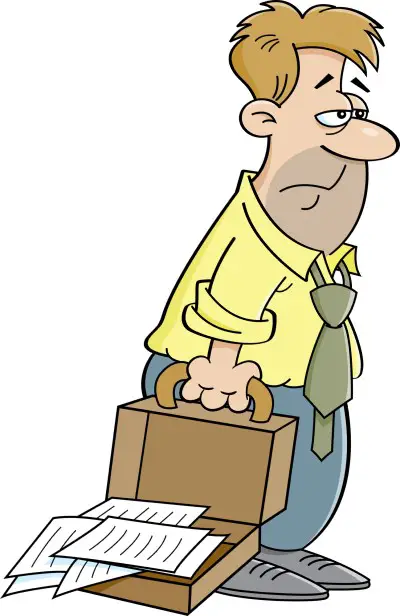
1) It will turn you into a miserable sleep-deprived zombie
I remember when I first started experiencing sleep apnea symptoms. I would wake up in the morning with awful headaches. I couldn’t think and it was challenging to get even the simplest things done.
That’s what sleep apnea does to you as you go night after night with poor sleep. You become a sleep deprived zombie stumbling throughout the day.
Talk about miserable.
If that downside isn’t bad, I don’t know what is…
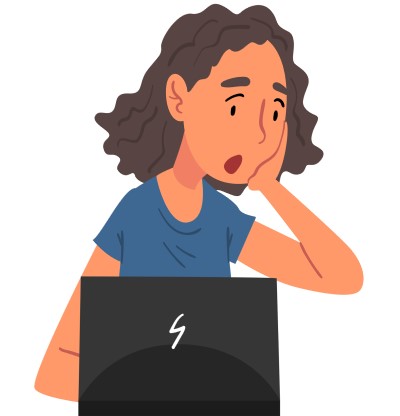
2) It can hurt your performance on the job
It’s no surprise chronically sleep-deprived people don’t perform as well on the job. You can’t think clearly and have a harder time coping with everyday things.
Would you believe studies have found that when you’re sleep-deprived what it does to your brain is the same as being drunk?
Because of your sleep apnea, it’s going to take you longer to get things done and won’t be as productive. You’re also more likely to make mistakes.
It should be pretty obvious how this can put a job at risk.

3) It can strain even the strongest of relationships
A health crisis can add a ton of stress and chip away at the strongest of relationships. Sleep apnea is no different.
You may have a hard time participating in normal everyday activities, including household chores and social outings. It may be also harder to sort through emotions and deal with everyday issues that come up.
Physical intimacy can suffer due to suppressed sex hormones, erectile dysfunction, and low energy. (Studies have shown that sleep apnea patients have higher rates of sexual dysfunction.)
Emotional intimacy can suffer due to poor communication, irritation, anger, and stress.
And then there’s the snoring, one of the most common spousal complaints. Would you believe it’s been estimated to be the third most common cause of divorce in the United States and Great Britain?
Taken altogether, that’s a lot keeping you from having a functional and healthy relationship.
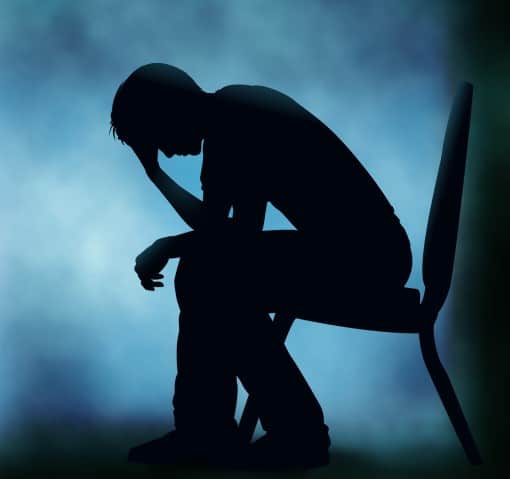
4) It can increase your risk for anxiety and depression
There’s a strong link between poor sleep and mental health challenges. For sleep apnea patients, one study found that their odds for anxiety were increased by 3.68 times and the odds for depression by 3.11 times.
Unfortunately, anxiety and depression can worsen sleep which means you may enter into a downward spiral.
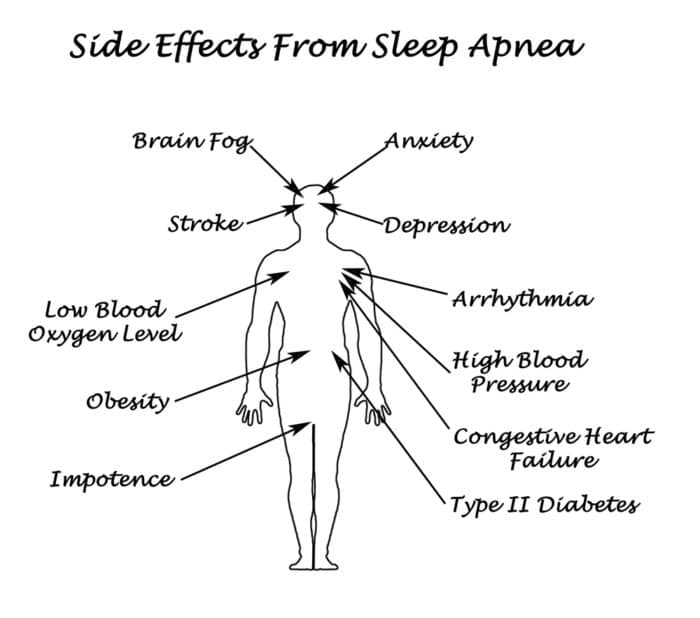
5) It can increase your risk for life threatening health complications
Sleep apnea is linked to all sorts of serious health issues including obesity, diabetes, high blood pressure, heart attacks, and stroke.
These health issues are challenging enough all by itself. Anything like sleep apnea that can make them worse is for sure to be avoided.
So, just how serious are the links between sleep apnea and life threatening health complications?
Obesity
Excessive weight gain can increase your risk for a long list of health problems.
It should be no surprise that people with sleep apnea are less motivated to exercise and eat healthy. They’re also more likely to eat at the wrong time due to changes in the hormones that affect how hungry you feel.
Unfortunately, weight gain can make sleep apnea worse.
Diabetes
Diabetes is a disease in which blood sugar levels remain too high. Over time, it can lead to tissue damage in the body and cause serious problems.
Did you know that diabetes and sleep apnea are strongly associated with each other?
There’s growing evidence that OSA is an independent risk factor for type 2 diabetes. It’s been linked to insulin resistance, poorer glucose control, and vascular disease.
A recent analysis of the combined the data from 19 studies found that more than half of people with type 2 diabetes also have OSA
Heart health
Heart disease is one of the leading causes of death worldwide. OSA has been linked to coronary heart disease, heart failure, stroke, and atrial fibrillation.
Did you know that sleep apnea patients are 2 to 4 times more likely to develop abnormal heart rhythms?
Their risk of heart failure is 140 percent higher and the risk for coronary heart disease is 30 percent higher.
Risk of death
A five-year study involving nearly 11,00 people found those with OSA had a higher risk of sudden cardiac death.
Researchers at Penn State College of Medicine have found that people living OSA are twice as likely to experience sudden death compared to people living without it.
Finally, a John Hopkins study found that severe sleep apnea in middle or old age can increase your risk of dying prematurely by up to 46 percent.
Sleep apnea is only bad only if left untreated
So, finally we get to the good news – sleep apnea is only bad if you don’t do anything about it. As grim as things may seem right now, you don’t have to live this way.
I remember how much better I felt when I finally got an official diagnosis and a CPAP machine. After my first night of therapy, it was like waking up from a fog.
Unfortunately, 80% of people with moderate or severe sleep apnea go undiagnosed. This means millions of people are living with untreated serious sleep apnea and the toll it takes on their life.
There are plenty of practical things you can do to keep sleep apnea from ruining your sleep and wrecking your life:
Sleep hygiene:
There are so many different things that affect how you sleep. Your everyday habits, also known as sleep hygiene, can make it harder or easier to get quality sleep.
For better sleep hygiene, you should:
- Wake up and go to bed at the same time every day
- Exercise
- Avoid large meals, alcohol, and stimulants such as caffeine before bedtime
- Maintain a bedtime routine
- Avoid electronics (TVs, tablets, smartphones) near bedtime
- Keep your bedroom dark, cool, quiet, & relaxing
Lifestyle changes:
Avoid substances like alcohol that may relax your throat muscles too much or smoking which can have harmful effects on the lung. Smoking can aggravate and worsen inflammation in the airway causing your sleep apnea symptoms to be more severe.
Change your sleep position:
Did you know that over half of obstructive sleep apnea sufferers have symptoms that are “position-dependent”? Their sleep apnea attacks are worse if they sleep on their back.
Depending on the severity of your sleep apnea, sleeping on your side may help keep your throat more open and improve your symptoms.
Weight loss:
About half of people with sleep apnea are overweight, even a small amount of weight loss can help improve symptoms.
Physical activity:
Besides helping with weight loss, physical activity is known to promote deeper sleep and there’s evidence it can help reduce sleep apnea breathing disruptions too.
So, figure out something that will work for your situation whether it’s swimming, bicycling, jogging, or getting out for a walk. If you’re dealing with other health issues, be sure to check with a doctor so you don’t overexert yourself.
Dietary changes:
Eating healthier can help with weight loss and keep you from eating foods in the evening that may come back to wreck your sleep. A low carb anti-inflammatory diet may also help since sleep apnea has been connected to inflammation.
Sleep apnea diagnosis and treatment:
It’s important to see a sleep specialist, get an official diagnosis, and learn about treatment options that can work for you. Learn more
Have you tried CPAP and given up? (Some people have a hard time with the mask and CPAP setup.) Don’t lose hope, there are more options than ever before.

Counseling:
I’ve already mentioned the link between sleep, anxiety, and depression. You want to avoid getting into a vicious cycle where things slowly spiral more out of control.
If you find you’re feeling more anxious or more down than usual, it’s worth having a chat with a therapist.
You may also be interested in:
Does sleep apnea reduce life expectancy?
Does sleep apnea get worse over time?
Yes, skinny women get sleep apnea too
Can sleep apnea really cause IBS?
Remedies:
9 Things to try to treat sleep apnea yourself
Sleeping with someone with sleep apnea – 6 things to try
Worried sleep apnea is ruining your marriage? – 3 practical tips for survival and recovery.
The Latest Sleep Apnea Devices and Treatment Options (A complete List)
Sources:
1. Estimation of the global prevalence and burden of obstructive sleep apnoea: a literature-based analysis, Lancet Respir Med. 2019 Aug; 7(8): 687–698.
2. Clinical presentation and diagnosis of obstructive sleep apnea in adults, 2022, UpToDate
3. Stages of Sleep,2022, sleepfoundation.org
4. Sleep Deprivation Has The Same Effect as Drinking Too Much, Says Study, 2017, ScienceAlert
5. Is Your Intimate Relationship Suffering Due to Untreated Sleep Apnea?, 2022, American Sleep Apnea Association
6. Sleep apnea, psychopathology, and mental health care. Sleep Health. 2017 Aug; 3(4): 244–249.
7. Sleep Apnea, Cleveland Clinic
8. Why does sleep apnea cause weight gain?, resmed.com
9. Obstructive Sleep Apnoea and Type 2 Diabetes, Eur Endocrinol. 2014 Feb; 10(1): 43–50.
10. Obstructive Sleep Apnea and Type 2 Diabetes: Is There a Link?. Front Neurol. 2012; 3: 126.
11. The prevalence of obstructive sleep apnea in patients with type 2 diabetes: a systematic review and meta-analysis. Sleep Science and Practice volume 6, Article number: 6 (2022)
12. Sleep Apnea and Cardiovascular Disease: Lessons From Recent Trials and Need for Team Science. Circulation. 2017 Nov 7;136(19):1840-1850.
13. Epidemiological insights into the public health burden of sleep disordered breathing: sex differences in survival among sleep clinic patients. Thorax. 1998 Oct; 53(Suppl 3): S16–S19.
14. Obstructive sleep apnea and the risk of sudden cardiac death: a longitudinal study of 10,701 adults. J Am Coll Cardiol. 2013 Aug 13;62(7):610-6.
15. Sleep apnea increases risk of sudden death, cardiovascular conditions, 2021, psu.edu
16. Why Do People Snore?, Johns Hopkins Medicine
17. Epidemiology of Obstructive Sleep Apnea: a Population-based Perspective. Expert Rev Respir Med. 2008 Jun 1; 2(3): 349–364.
Connect with us:
About Us
Better Sleep Simplified® was founded as a place for you to get clear and well-researched information.
Our goal is to make sure you know about your options so that you take action sooner rather than later.
Check us out on YouTube:
Watch and Learn
Helpful sleep tips, interesting sleep facts and statistics you want to know about
Affiliate Disclosure
This site is a participant in the Amazon Services LLC Associates Program and other affiliate advertising programs designed to provide a means for sites to earn advertising fees by advertising and linking to them.
Important: BetterSleepSimplified.com is for informational purposes only and is not intended or implied to be a substitute for professional medical advice, diagnosis, or treatment. Always consult a physician for sleep and health concerns. See additional information.
